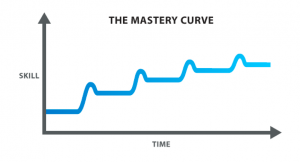You’ve read all the books, listened to all the “experts” on TV, and tried every diet pushed your way. But it hasn’t worked. You still haven’t lost the weight. Or, more likely, you lost some weight and then put it all back on. We all know why: diets are often completely unrealistic and almost always unsustainable.
What if I told you that you that there’s another way to lose weight, feel awesome, and actually learn something to take with you for the rest of your life?
If you were going to learn to play the piano, how would you start?
Would you just sit down, randomly push on the pedals, and press any key at your whim? Of course not. You wouldn’t know what you’re doing so how could you expect to make music? Unfortunately, when it comes to taking our health into our own hands, for some bizarre reason, this simple logic is ignored. We all want some quick fix, the magic elixir. We each want to be the exception to the rule.
“Dieting doesn’t work for anyone else, but I’m different.”
Mozart, one of the greatest child prodigies of all time, took nine years to become a master composer. Prodigy is just another word for training. Even he couldn’t shortcut it.
If you want to be fit and lean for the rest of your life—the fantasy we all have—then wouldn’t it serve you to think of your diet and lifestyle as a long-term project and not something that has an expiration date?
That’s why I look to the mastery model of skill acquisition to guide my clients toward their health and weight goals.
It’s my belief that living healthily is a skill you can train and, eventually, master.
But it takes practice. It requires adopting a system, committing to daily practice, and trusting in the process.
Thanks to Robert Green, in his epic book, Mastery, here’s how mastery works—and how you can apply it to your diet:
The 7 Steps of Mastery
#1 The Blueprint
If you’re learning to play the piano, you will need to immerse yourself in all of its elements: the pedals, the keys, your hands, how to sit, where to look, the scales, the music theory and the sheet music. All of these provide the foundation for every piece of music ever played.
They arrange in such a way as to provide a blueprint for how you must engage the process.
This is where we begin. You will learn about diets—not dieting—nutrition, what foods are good for you, how much of those foods you can eat—hint: a lot—calories, sugar. The facts, in other words. The foundation you need to actually succeed.
Without this, you’re just pushing random keys.
#2 An Instructor or Coach
When learning to play the piano, you won’t get very far without an instructor. How will you even know where to start? How will you know how to distinguish good from bad habits? The importance of the apprenticeship model for learning and skills acquisition cannot go unstated.
As your lifestyle and diet coach, it’s on me to prove that I have your best interests at heart. To create an environment in which you feel like it’s safe to be yourself. Someone you trust. Someone who keeps you connected to your intentions. Frankly, someone who knows what he’s doing.
And perhaps most important of all, someone who’s been through what you’re going through.
#3 Identify and remove barriers to success
When learning to play the piano, there are obvious barriers to success: not knowing how to use the pedals, not knowing how those pedals interact with the keys, not knowing the exact sound each key makes. That’s why you need a model, an instructor, a coach.
But there are also other barriers to your success: people, habits, mindsets.
Maybe there’s a person in your life who doesn’t want you to spend time on a new endeavor. Maybe that person has a habit of not committing to healthy or inspiring practices. Maybe that person has a fixed mindset instead of a growth mindset and quits when things get too difficult. Maybe that person finds themselves giving in to easy temptations and wants you to join.
As far as your health and diet are concerned, removing temptation is a necessary condition of success. You will not be successful if you are constantly beleaguered or oppressed by cravings and temptations—the very things that you’re trying to overcome. This is especially true at the beginning of your journey as our primary objective is to re-establish center. Willpower is not enough. Self-control is overrated. You will constantly be led astray when chasing the treat, or trying to avoid it.
Barriers include all unhealthy foods that should be removed or discarded from your personal living environments such as work, home, car, etc., and which should be replaced with healthy options.
#4 Practice and Repetition
We learn best through practice and repetition—through actually doing the thing, rather than intellectualizing it. Would you learn to play the piano by reading about it, or by doing it? Which is infinitely more effective?
The more you play, the more easily you’ll be able to play. Not holding yourself to impossible standards of success, but by working your way through the music. Adapting to your internal orientation, your particular style, the demands on your life. The same holds true for living healthily.
Just as the notes give architecture to your playing, we will focus on the cues, rewards, and routine that define your current set of eating habits. We will train new routines by planning, preparing, and strategizing day by day, by building out a framework of success that integrates into your particular lifestyle.
To think about it another way, after training healthy decision after healthy decision, no matter the context or challenge, this behavior will become natural to you. You’ll have developed a whole new set of instincts. At a very foundational level, your relationship with food will have changed.
#5 Feedback and Accountability
If you don’t seek feedback, or are resistant to critique, your growth will stagnate. It helps to gain as much feedback as possible from others, especially your coach or instructor, to have standards against which you can measure your progress.
If you don’t seek out feedback, if you’re not completely open to it, it will be all the harder to manage your most challenging, compulsive food binging moments. If you’re not comfortable making yourself vulnerable and asking for help, why wouldn’t you say, “F**K it”, and go off-plan and eat the entire pizza? Those same emotions that make it hard to ask for help are the ones that are teasing you to eat the pizza.
#6 Automation and Flow
You started with the basics of playing the piano—learning how the pedals work, how the keys work, your hand positions. You practiced over and over because repetition is the mother of all skill. You sought feedback from a master, or at least someone who’s much more experienced than you. You took that feedback. You put it into practice.
Now, you sit down at the piano and play. You don’t consciously think “OKAY, now it’s this key, now this key”, because you don’t need to. Because now, you know how to play the piano. Playing is automatic. Easy, even.
It’s the same with food, with your eating habits, with your diet: you no longer have to think about it. It’s no longer a fight between healthy or unhealthy. “Should I or shouldn’t I?” Eating healthily is just what you do, instinctively.
That’s automation.q
Flow is when you reach a point where your mind is totally absorbed in the practice. Everything else is blocked out. You become one with the tool or instrument or thing you’re studying. The musician becomes one with the piano, and in the case of your diet, you become one with yourself. Because when it comes to your diet, you are the instrument. The food, your choices, are the keys.
It is not something that can be put into words because it is embedded in your body and nervous system. You just know it. You live it. You are it.
#7 Mastery
I’m stealing directly from Robert Greene here:
“When you practice and develop your skill, you transform yourself in the process. You reveal to yourself new capabilities that were previously latent. You develop emotionally. Your sense of pleasure becomes redefined. What once offered immediate pleasure in the form of sugar or candy or plastic-wrapped fast food comes to seem like a distraction, a collection of empty entertainments now robbed of their allure. Real pleasure comes from overcoming challenges, feeling confidence in your new abilities, gaining fluency in skills, making choices that are right for you, and experiencing the power that this coherence brings.”
You never stop practicing, because you’re totally immersed in it. There’s no getting outside of it because it’s become you.
Mastery requires years of training, but here’s the good news…
And some more good news: you don’t have to master your diet to lose weight, to get in shape, to feel good, to look good, to finally have a solution that’s realistic and sustainable.
The mastery model provides just that: a model. A new mental representation of how to go about treating your health and “getting healthy.” It’s not a race, it’s a process. It’s a skill you can train.
This is a Contributor Post. Opinions expressed here are opinions of the Contributor. Influencive does not endorse or review brands mentioned; does not and cannot investigate relationships with brands, products, and people mentioned and is up to the Contributor to disclose. Contributors, amongst other accounts and articles may be professional fee-based.


